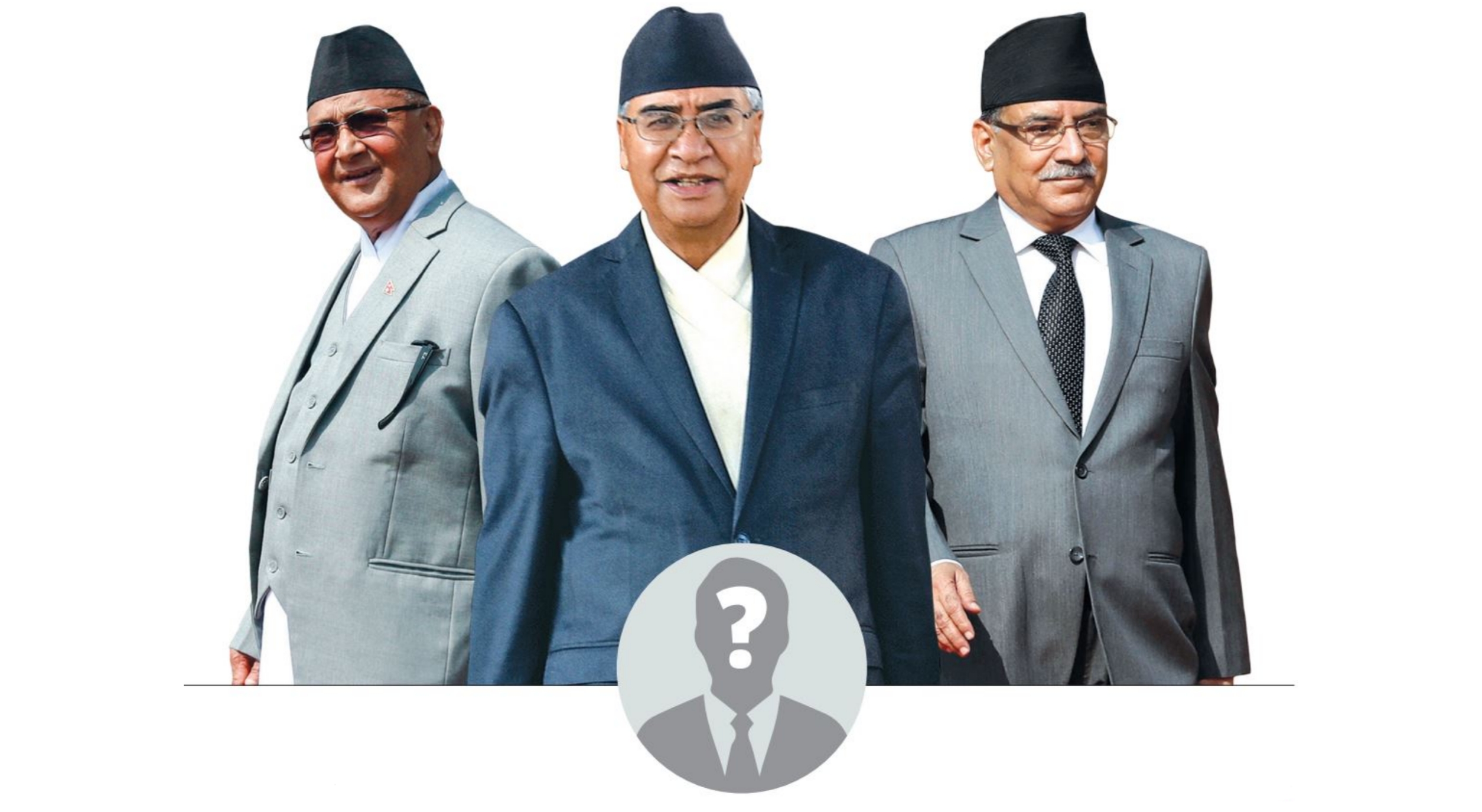The Nepali Congress and the CPN-UML appear to be heading towards a right-wing race to emerge as the first and the second largest party in the federal parliament (not necessarily in that order). Numbers streaming in from more than 140 constituencies point at such a scenario as the counting of votes after Nov 20 elections reach its midway.
The sideshow of this race is no less interesting, with the CPN (Maoist Centre), Rastriya Swatantra Party (RSP), and the CPN (Unified Socialist) competing to become the third, fourth, and fifth largest parties. As of Nov 22 evening, NC has won two seats under the First-Past-the-Post (FPTP) system and is leading in 50 seats, whereas UML has bagged two seats and is leading in 40 seats.
Trailing well behind, the Maoist party is leading in 15 constituencies, while the CPN (Unified Socialist) is leading in eight constituencies. Under Proportional Representation (PR), UML is in the first position, NC second, RSP third, whereas the Maoist is in a distant fourth position. In the Kathmandu valley, RSP is receiving more votes than major parties under PR, giving the latter more than what they had perhaps bargained for.
The new federal parliament will see new parties such as RSP, CK Raut-led Janamat Party, and Nagarik Unmukti Party led by Resham Chaudhary’s spouse Ranjita Shrestha. Nagarik Unmukti Party candidate Ganga Ram Chaudhary has won in Kailali-3, whereas Shrestha is leading in Kailali-1 and is expected to win. Resham Chaudhary is in jail in connection with the 2015 Tikapur incident in which nine people were killed in a violent clash.
This time, the royalist Rastriya Prajatantra Party (RPP) is likely to increase its strength in the parliament. The new party in the parliament means voices opposing the constitution will get louder in the coming days. But RPP is not the only political force that will make its presence felt in the parliament. RSP also has reservations about the current structures of the federal government and it made its reservations quite public by not fielding candidates for the provincial assembly. The RPP wants to scrap secularism and federal structures.
The Nagarik Unmukti Party and Raut’s party have their own positions on the constitution. So, it will be tough for the major political parties to manage those voices within the framework of the constitution.
If the preliminary count is anything to go by, the Maoist party is unlikely to perform well. Before the elections, the party had hoped to secure 50 seats combined in FPTP and PR, but preliminary counting does not indicate so. Top party candidates Pampha Bhushal (Lalitpur-3), Onsari Gharti Magar (Kathmandu-2), and Dev Gurung (Lamjung-1) are lagging behind in vote counts.
Maoist candidates from mid-western districts and Madhes are faring well in preliminary counting. It is almost certain that the Maoist's chair Pushpa Kamal Dahal will emerge victorious in the elections. If the Maoist party fails to win 40-50 seats, thereby emerging as a king-maker in power-sharing, a new scenario may emerge, which will affect government formation. The election result is likely to cause animosity between the NC and the Maoist party, with preliminary results showing that NC cadres did not vote for Maoist candidates in several constituencies.
And if the CPN (US) also does not fare well in the elections, the ruling coalition will find it harder to secure majority seats in the parliament. If the Maoist party's strength decreases, it may lose its bargaining power. In such a scenario, the chances of the NC and the UML coming together for government formation cannot be ruled out.
Just before the election, in an interview, UML chair KP Sharma Oli had hinted at this possibility. The chances of Oli becoming prime minister cannot be ruled out.
If the current coalition remains intact even after the election, Dahal is likely to become prime minister. Preliminary counting is indicating a more impractical and complex power-sharing deal. The incumbent, Sher Bahadur Deuba, would want to be re-elected prime minister on the ground that the NC became the largest party under his leadership (if this indeed happens). But Deuba is not the only candidate in the fray: Youth leader Gagan Kumar Thapa has made it clear that he will contest the race to become NC’s parliamentary party leader and then the PM.












